SKY OF BLUE FISHES - The Thirteen Roses
Electroacoustic music and original documents, 2003
Idea: Fernanda Romeu Alfaro and Ebba Rohweder
Voices: Ángeles García-Madrid, Eva Varela Lasheras and Ana Herández
Cello: Anna Carewe
Premiere: 14 April 2004, Entredos, Madrid
Annual Act of the Anniversary of the Second Republic in the presence of
Ángeles García Madrid and survivors of the Civil War
In 2004 broadcast on RNE Radio Clásica
The original documents - the letters of Julita Conesa and the poem by Rafaela González - are taken from the book El Silencio Roto. Mujeres contra el Franquismo (The Broken Silence. Women against Francoism) by Fernanda Romeu Alfaro, El viejo Topo, 2002
The interview with Ángeles García-Madrid was made in 2003
SKY OF BLUE FISHES was composed in the electronic studios LIEM/CDMC, Madrid and at the Technical University TU, Berlin
Duration: 40:44 minutes. Released on CD, 2004
SKY OF BLUE FISHES is a tribute to The Thirteen Roses. The work is composed of original documents, an interview with a witness and an electroacoustic music composition specially created for this project. |
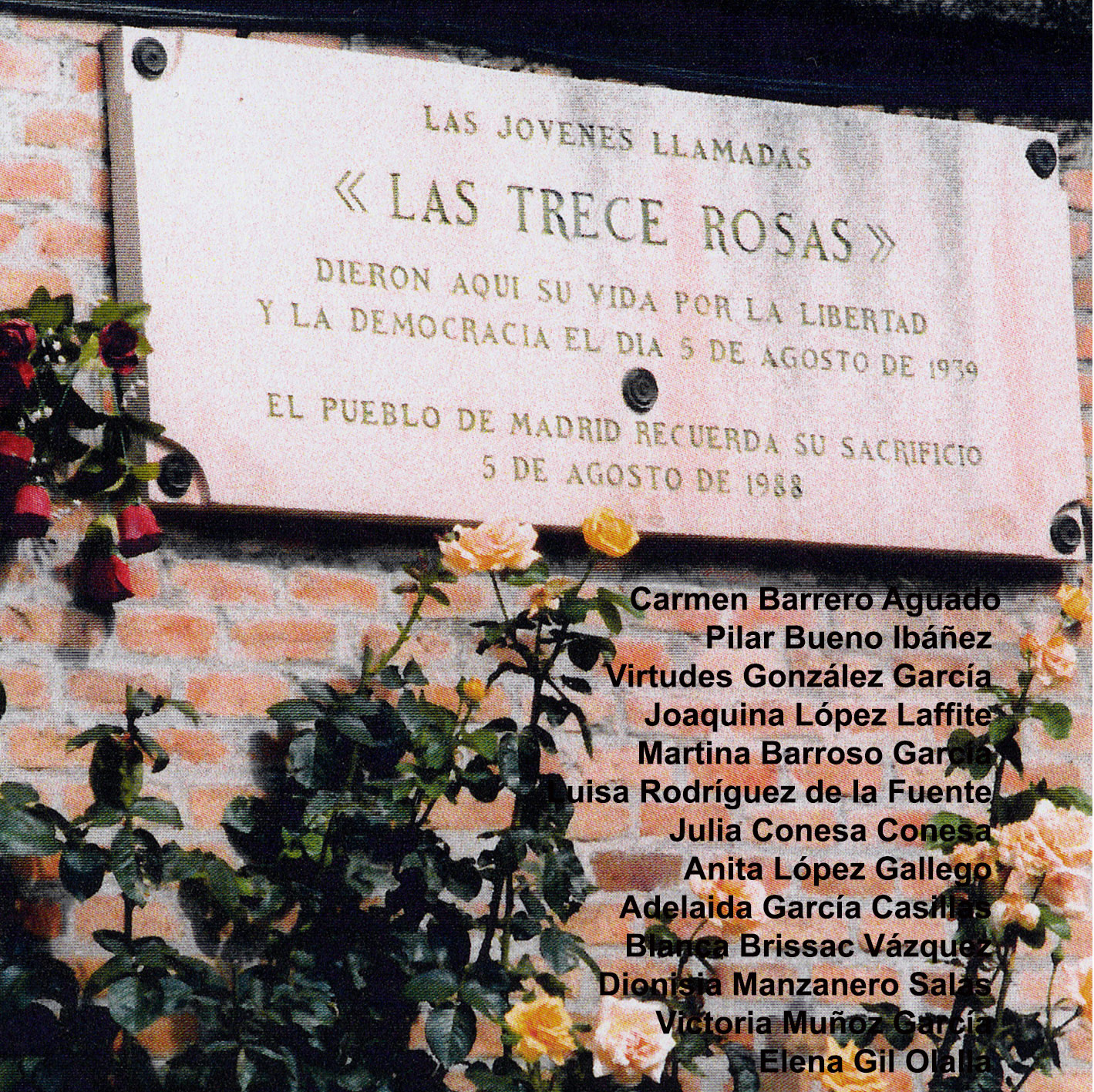
Cover of the CD SKY OF BLUE FISHES - The Thirteen Roses, 2004
|
Listen an extract of the CD The Thirteen Roses
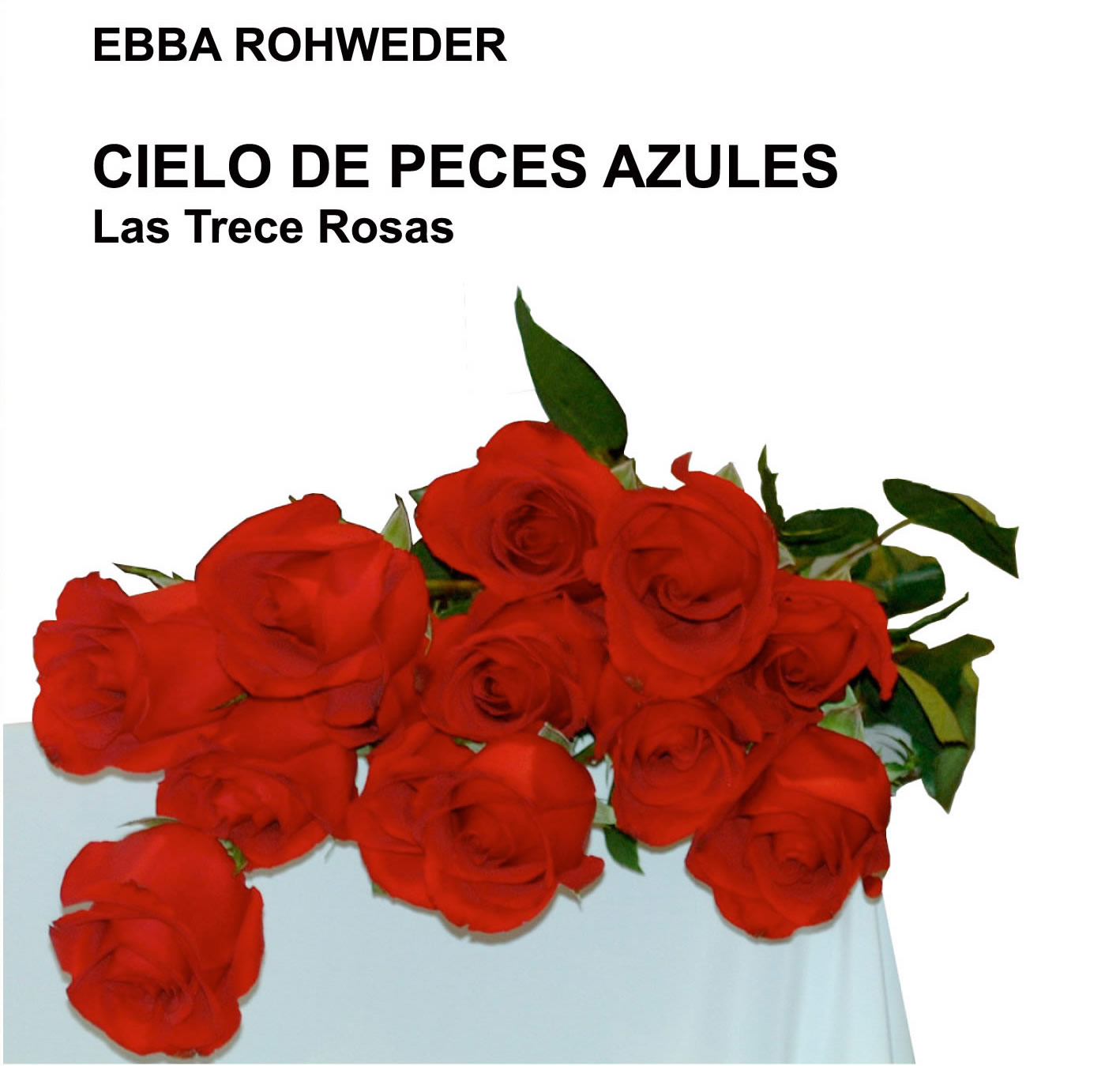
Cover of the CD SKY OF BLUE FISHES - The Thirteen Roses, 2004
At dawn on 5 August 1939, 56 young men and women were taken from their cells in Madrid's Ventas Prison and shot in the Cementerio del Este cemetery near the prison. They were arrested in April and May of the same year - shortly after the declaration of the end of the Spanish Civil War.
They had in common their links with the United Socialist Youth (JSU), whose structure in Madrid they were clandestinely trying to rebuild: the specific offence for which they were convicted was that of "joining the rebellion", punishable by death. The court martial lasted two days and the sentence was dated the following day, 3 August 1939. Thirteen girls were among those sentenced to death. The news of their execution spread like wildfire in the Ventas prison and was accompanied by international protests. Since then they have been known as Las Trece Rosas (The Thirteen Roses).
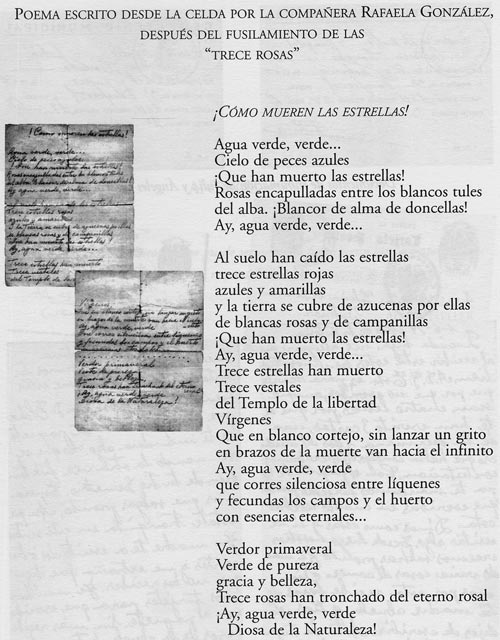
|
The Thirteen Roses
Carmen Barrero Aguado
Pilar Bueno Ibáñez
Virtudes González García
Joaquina López Laffite
Martina Barroso García
Luisa Rodríguez de la Fuente
Julia Conesa Conesa
Anita López Gallego
Adelaida García Casillas
Blanca Brissac Vázquez
Dionisia Manzanero Salas
Victoria Muñoz García
Elena Gil Olalla
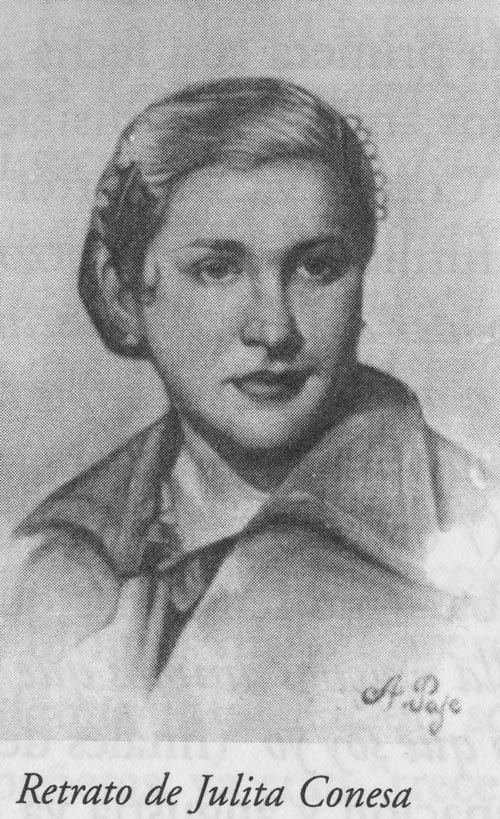
The last letters of Julita Conesa, one of The Thirteen Roses, written from prison to her family, are preserved as original documents. At first she still hoped that she would be released. But in the end she accepts the sentence of the trial - the death sentence. Julita's last letter, dated 5 August, shortly before her execution by firing squad, is a moving document of the farewell to the life of a 19-year-old girl.
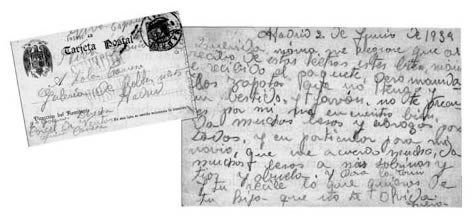
Letter of Julia Conesa, 1939, El Silencio Roto. Mujeres contra el Franquismo de Fernanda Romeu Alfaro, El viejo Topo, 2002
The witness Ángeles García-Madrid was at the same time as The Thirteen Roses in the prison of Ventas. In the interview she recalls the helplessness and despair of all the prisoners in the jail and the silence of death at the very moment when the girls were taken out of the cells.
Although directed by a storyline: there is an experimental mixture of text and music whose rhythms influence each other, repetitions that set patterns and sounds of voices and cello manipulated with the help of the computer. In this way, a space is opened up for contemplation and emotional entry into the story of The Thirteen Roses and for accessing this important period in history.
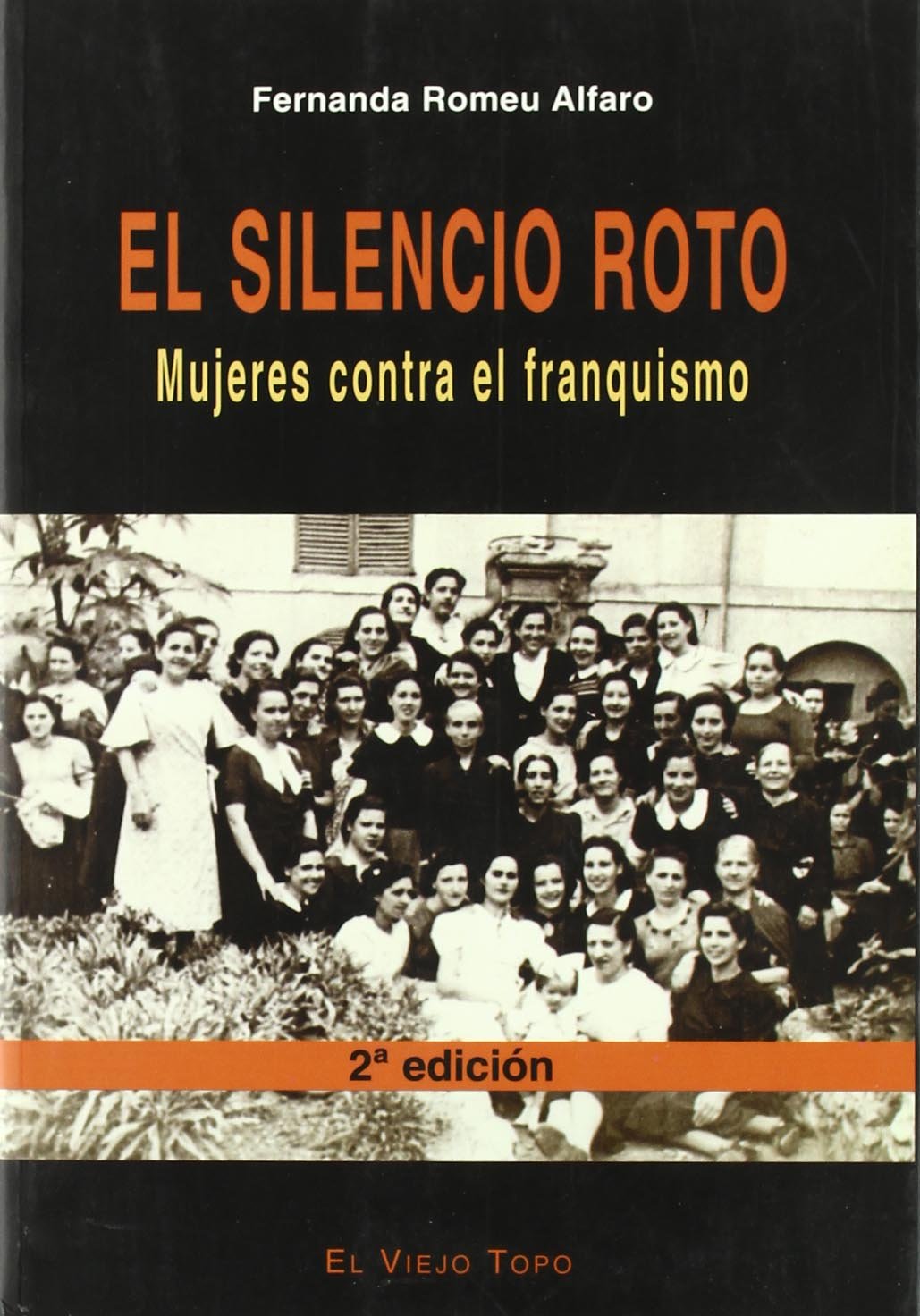
The Broken Silence. Women against Francoism by Fernanda Romeu Alfaro, El viejo Topo, 2002
|





